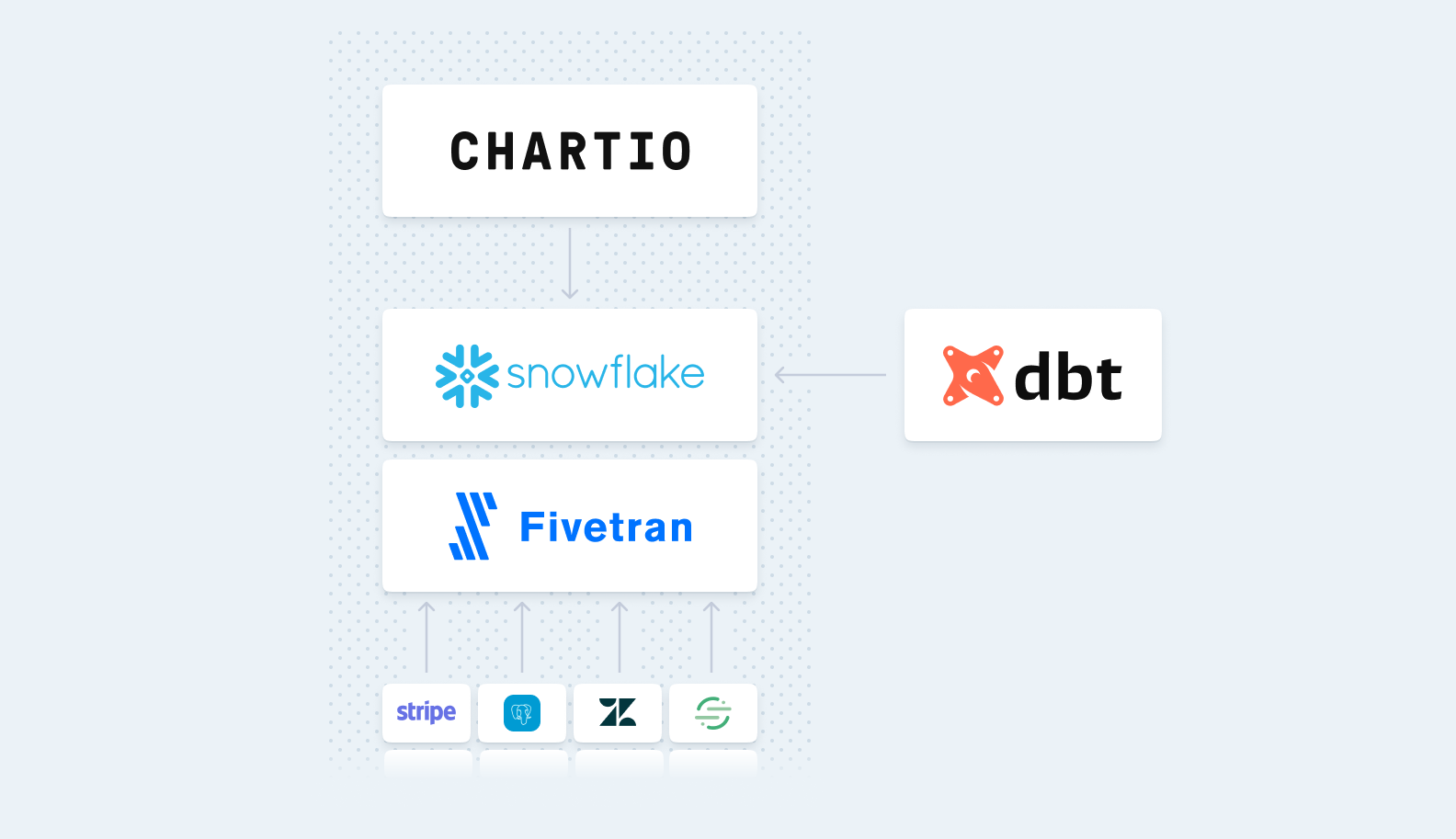Changing Your Company’s BI Mindset to Achieve Success
Posted by on February 16, 2017 Business Intelligence, Education, Data Analytics
This question originally appeared on Quora: Do you think companies need to go through a mind-shift to adopt BI tools and improve analytics? This is an interesting question for us because we inherently believe that Business Intelligence shouldn’t be in the hands of the few, but in the hands of everyone in an organization.
Since its emergence on the market, Business Intelligence has been locked away behind gatekeepers primarily in IT, data and analyst roles. Years ago, when data was mainly housed on-premise and the accrual costs of maintaining it was astronomical—it made sense that only those well versed in data handled data. Now, with the growing market of cloud-based data warehousing, modern ETL tools and self-service BI, access to data needs to be widespread.
At its core, BI analyzes massive amounts of data coming from disparate sources like Salesforce, MySQL, Amazon Redshift, Google Analytics, etc, and come together to provide insights to business decision-makers.
For years, data and BI functioned like a one-way street: a business user would request a report from IT, wait a few days for IT to collect data and create the report and send it back to the business user. The time frame in between requesting and receiving the report could be anywhere from a few hours, days to weeks. And should the business user have questions or need the report to be augmented, the entire process would have to be rebooted.
For businesses to succeed today, you need to put BI in the hands of business users. And for many companies, this involves a shift in mindset. Read our take on the debate as we discuss the three ways in which adopting BI involves a company-wide mind shift (for the better).
Democratizing Data Across the Organization
Much like investing in any tool, purchasing a BI solution will exponentially impact the business at a company-wide level. BI has the capability to allow everyone from data analysts to growth marketers to a VP of Sales to start in one place (the BI solution) and go anywhere from there, just by exploring data.
As BI has the power to answer questions and allow business users to engage with data, one definitive mind shift is in democratizing data. While data can still be maintained by a data or analyst team, this movement implies that business data becomes widely accessible to everyone in the organization.
With a broader access to data, businesses can then use BI to gain insights and drive their business forward. Unlike other reporting or analytics tools, BI has the unique ability to show a comprehensive and consistent view of the business, which is critical to every business role.
According to Gartner, “by 2018, most business users and analysts in organizations will have access to self-service tools to prepare data for analysis as part of the shift to deploying modern BI platforms.”
Putting BI in the Hands of Business Users
As businesses move to democratize data, the secondary mind shift in that movement involves putting BI in the hands of business users and empowering them to analyze their own data. While data and analyst teams are highly proficient in creating dashboards and charts for business users, if you asked them, their time could be better spent answering complex data science questions.
While BI has been in the hands of senior executives and high-level decision-makers for quite some time, it’s time for marketers, salespeople and customer success to have direct access to the insights provided by BI. Those of us in business roles should be able to interpret and capitalize on business data and organize our efforts and resources around the findings uncovered by BI.
In a recent study conducted by Technology Advice, it reported that with a BI solution in place, business users hope to gather insights around the following:
-
22% Sales forecasting
-
19% Social Media analysis
-
16% Logistics/Operational Analysis
-
12% Improve or monitor a marketing campaign
-
8% New Product Development
-
8% Segmenting customer base
For any business, no matter the size and industry, all of the above areas are key to overall business success. So, let’s unchain BI from data teams and enable business users.
Expectations of Fast Decision-Making
The truth of the matter is this: doing business today is an automatic mind shift. In previous years, the salesperson had control over the buyer’s journey. Now, 70% of the buyer’s journey is complete before the buyer talks to sales. The rapidly evolving and accelerating pace in doing business today poses a significant challenge and change in mind shift for businesses everywhere.
With all the changes to doing business today, everyone now expects a faster turn around from insights to decision-making. According to Forbes, “companies using analytics are 5x more likely to make faster decisions.”
With giving business users a mechanism to analyze their own data, they’ll be able to make faster decisions and iterate on their efforts at a much faster rate.
Conclusion
While many companies are undergoing a mind shift to adopt BI and improve overall analytics at their company (which we think is the right decision). It’s important to note that there are many successful companies today that still employe the older, legacy workflow of keeping BI within the data team.
However, as doing business is an ever-changing process, it’s beneficial to change strategy and democratize data. At the end of the day, without access to data and BI it eventually deters business users from asking questions and relying on data to make decisions, which impacts businesses.


